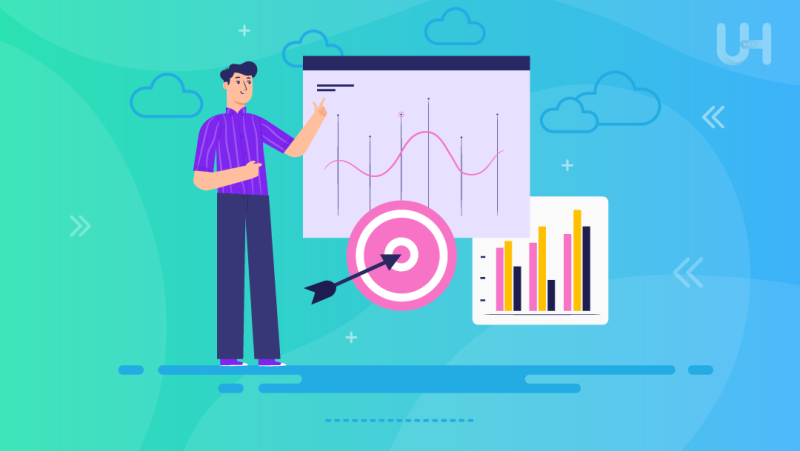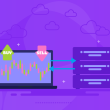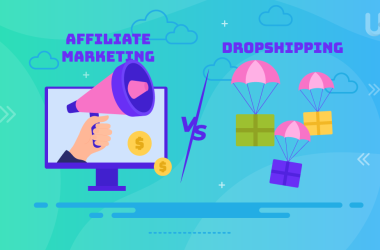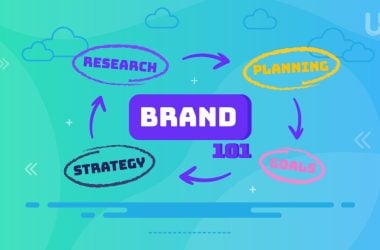Data has rapidly transformed into the gold standard for successful marketing in today’s era of digitalization. Data-driven marketing, which utilizes data analysis from diverse data sources, has become vital to all businesses wishing to compete.
In this article, we shed light on the essence of data-driven marketing, its definition, significant gains, and critical importance for contemporary marketing. This information is highly beneficial for all entrepreneurs and businesses who wish to enhance their interaction with clients and receive the highest return on investment.
What is Data-Driven Marketing Strategy?
Data-driven marketing refers to the technique that involves harnessing data sourced from customer interactions from within the organization without understanding the market relay. Once marketers obtain customer insights in terms of need, preference, motivation, and behavior, they can customize their marketing strategies to meet the target market with utmost accuracy.
Research reveals that about two-thirds of marketers believe data-driven decision-making is more complete as opposed to informed decisions. The primary areas of application of data-driven marketing include website personalization, A/B testing, customer journey mapping, and segmentation.
Additional areas of application include:
- Dynamic advertising: Advertisements can change dynamically across platforms like Twitter, Facebook, and Instagram. Data-driven marketing can decrease ad spend, improve conversion rates, heighten customer loyalty, and enhance return on investment.
- Retargeting: Explain how businesses track and reengage potential customers over the internet with a cookie, and data-driven marketing targeting algorithms help companies respond to the 98 percent of potential consumers who do not purchase in the initial visit with over a 50% reduction in return-on-spend.
- Targeted email marketing: Data-driven marketing significantly improves email campaigns. Measures include more personalized messaging with reliable email hosting as well as a 33% increase in the probability of achieving conversions and, more importantly, a deeper brand understanding.
- Paid search: Data-driven marketing makes this effort more effective by ensuring they are related to the target demographic, driving traffic to landing pages, generating more leads, and, more importantly, achieving more people for the same average spend on advertisement.
Benefits of Data-Driven Marketing

Let’s delve into the prominent benefits that data-driven marketing offers:
Learn more about your target audience
Accumulating and reviewing customer data allows marketers to examine their audience fully and create more powerful marketing campaigns. A good example is the integration of a customer relationship management system (CRM Software) that shows customer behavior, preferences, and previous interactions with the brand.
This knowledge will enable marketers to create highly personalized campaigns and send them to the target audience in the hope of seeing a real return on investment. Again, the idea is to keep the customer engaged and have a meaningful conversation instead of constantly bombarding them with messages.
Stronger relationships
Using data is essential for marketers to create more connections with their audience, no matter the size. Specifically, campaign data can be retrieved in real-time and used to reorient the strategy based on each customer’s level of engagement. That kind of fluidity results in campaigns that are more in line with the audience’s expectations.
It creates a more fluid and continuous experience. With just usage data to guide them, marketing can help businesses establish a sound relationship with clients to build high value and loyalty.
Personalization
One of the most noticeable advantages of data-driven marketing is that it helps generate messages that are deeply relatable to each customer on an individual level. By analyzing data about the customer, businesses obtain information on their wants, habits, attitudes, and other characteristics and can then target this data with marketing activities.
This may include email campaigns customized for specific customer groups, creating landing pages with particular people in mind, individual product offerings for immediate consumption, and even big data-driven pricing tactics. In turn, such messages appeal more to the customer since they genuinely pertain to their concerns and interests and contribute to increased customer attention and conversion success.
Elevate Your Marketing Strategy With UltaHost Today!
Ready to revolutionize your marketing efforts? Discover how UltaHost’s eCommerce Hosting can amplify your data-driven marketing initiatives. With a plethora of managed e-commerce hosting solutions, jumpstart your business today!
Improved decision-making
Data-driven marketing enables businesses to optimize their decision-making processes as this approach provides insights into customer behavior and preferences. It can present an opportunity to learn more about the target audience and the underlying factors that impact engagement and conversion.
More specifically, information about customer demographics, geography, past purchases, and browsing may be used to identify valuable trends and insights for product choice, channel behavior, and messaging strategy selection. This data allows companies to get the most return on their marketing spend, eliminate waste, and maximize the ROI of marketing campaigns.
Faster time to market
Data-driven marketing enables companies to improve overall efficiency and accelerate time-to-market for new products or services. Automating many marketing activities enables businesses to optimize operations and lower overall costs while increasing productivity.
For example, automated email campaigns could send targeted messages to a set of customers based on their behavior or preference without the need for time-consuming manual work.
Better efficiency
Being data-driven in your social media marketing strategies enhances performance and transforms marketing functions. Organizations can enhance various processes by analyzing data, which can help lower the number of unnecessary tasks involved in operations across the board. Moreover, the data-driven approach enables businesses to identify areas that need improvement while cutting down on costs and enhancing resource management.
Moreover, the use of data drives a business and marketing strategy, which helps organizations operate cautiously in the modern marketing environment. This ensures that the business focuses on efforts that only have the desired impact, thus propelling the organization to achieve its goals quickly and efficiently.
Execute Your Data-Based Marketing Swiftly
Data-driven marketing actually helps marketers complete their business goals, devise marketing plans, and spend on campaigns correctly. Below are a few strategies that can support and charge your marketing efforts.
It doesn’t matter if the goal is increased product sales or learning about outside markets. It is vital to acquire demographic data continually, which can help conduct successful campaigns. Simply put, this marketing strategy can find gaps in demographic information and increase CTR and further conversions.
Furthermore, the data you gain from one process may be used in different company cycles. If you are starting a new campaign without knowledge of the last campaign on a broader scale, that’s not a great idea! With actionable data collected from all over the business, you can target the audience with the right and tailored message when they are presented.
Implementing a Data-Driven Marketing Strategy
Building a data-driven marketing strategy can be complex. The complexity is much greater when essential steps are missed, forcing teams to restart and significantly increasing the time to reach the desired value from the initiative. Before outlining your marketing strategy, make sure to identify the critical steps of the process and sufficiently plan and allocate resources to them.
Data Requirements
Depending on the purpose of the program, the required data will change. For example, consumer data is most important if you are willing to build one-to-one user profiles. On the other hand, attribution data is most important if you aim to understand the purchase path and customer journey.
After purpose definition, you need to define Key Performance Indicators (KPIs) that will help you measure how well you are doing on your program. The purpose of the data is crucial. You will work closely with your data science team to notice potential missing fields and develop a plan to work with them to close this gap to measure KPIs and go forward.
Enforce Data Quality Standards
The efficacy of your data-driven marketing is dependent on the credibility and integrity of the presented data. Attempting to work from questionable and incomplete data threatens your results. It should be noted that you may feel compelled to make arrangements that differ significantly from those of your customers.
The most effective approach to countering this challenge is the need to initiate robust data quality standards. These will guide the quality of data that will inform each of your decisions. Standardizing known policies across all our departments would also enforce standardized recording practices. The components of data quality should fall under the following dimensions:
- Completeness / Comprehensiveness
- Consistency
- Accuracy
- Format
- Timeframe
- Validity
- Integrity
Conclusion
Data-driven marketing is undoubtedly the backbone of contemporary business practice that provides business owners with unique, informative dimensions to access clients, their behavior, preferences, and market trends. Through data, businesses can maximize their strategic efforts and efforts in marketing as they promote customer engagement toward long-term sustainability and success.
The data-driven methods allow for fast decision-making, promote more intimate client interactions, and propel the companies rapidly toward their objectives and targets. As firms continue to delve into digital marketing, incorporating data methodologies is not just an option but a requirement to outperform today’s dynamic markets.
As you strive to optimize your marketing strategies, consider partnering with the Ulta affiliate program by UltaHost. With our program, not only can you earn at least 60% from every sale, but you also have the opportunity to promote a trusted service loved by millions.
FAQ
How does data-driven marketing differ from traditional methods?
Data-driven marketing prioritizes personalized, targeted strategies based on extensive data analysis, contrasting with traditional approaches that often rely on generalized tactics.
What efficiencies does data-driven marketing bring to operations?
By identifying inefficiencies and leveraging data insights, data-driven marketing streamlines processes, reducing costs and improving resource allocation.
What challenges may arise in implementing data-driven strategies?
Challenges like data privacy concerns and integration complexities may hinder implementation. Overcoming these requires careful planning and adherence to regulations.
How can businesses measure the success of data-driven initiatives?
Tracking metrics like conversion rates and ROI helps gauge effectiveness, guiding refinement for continual improvement.










